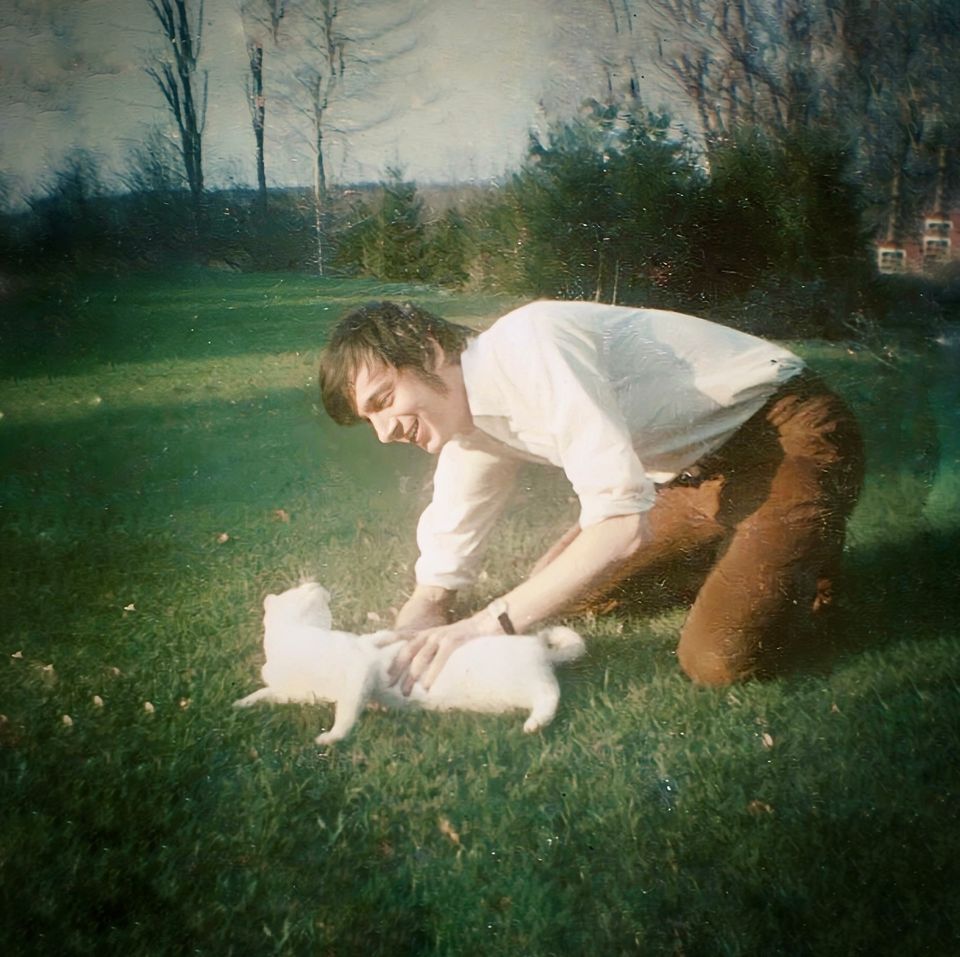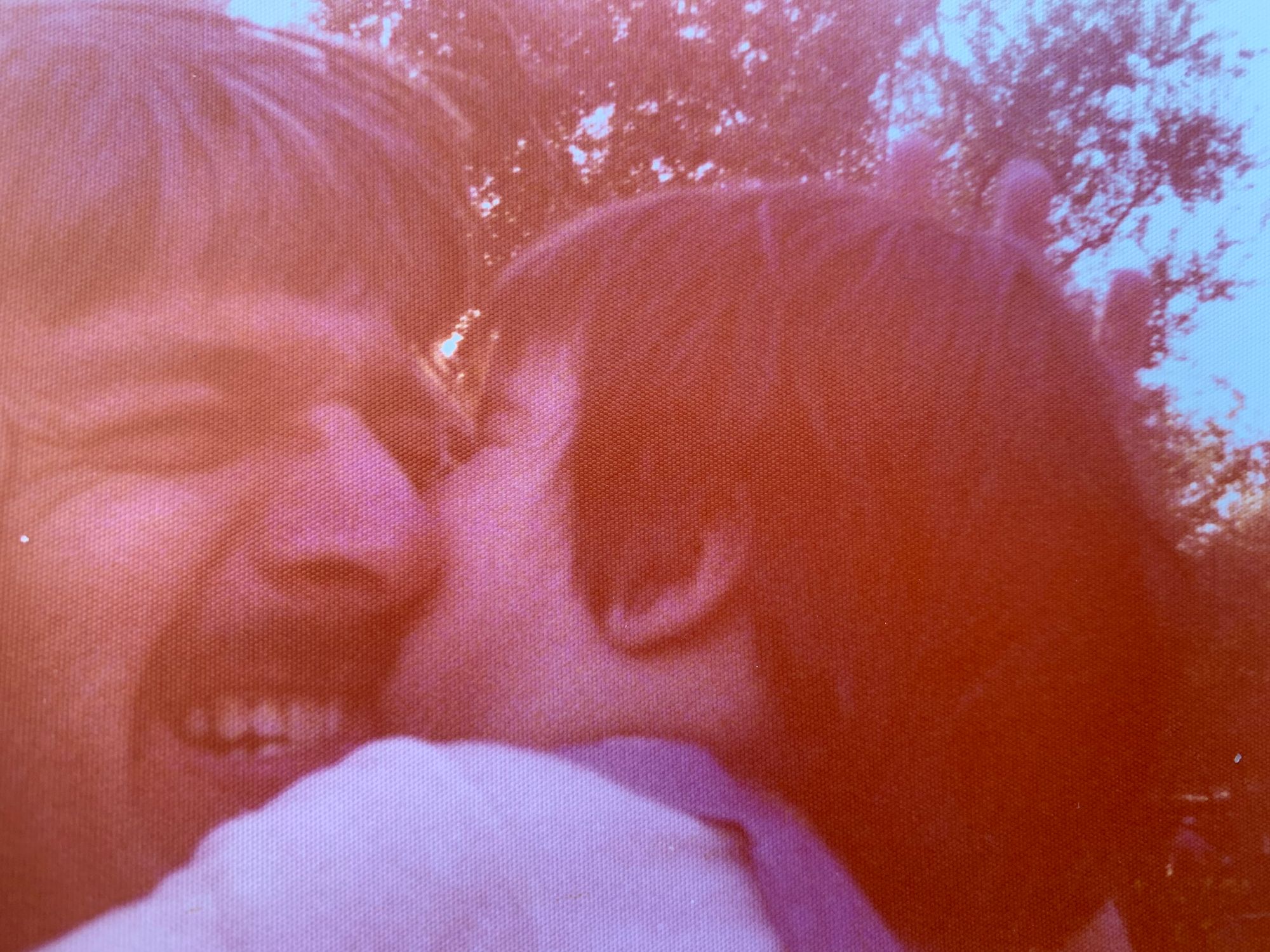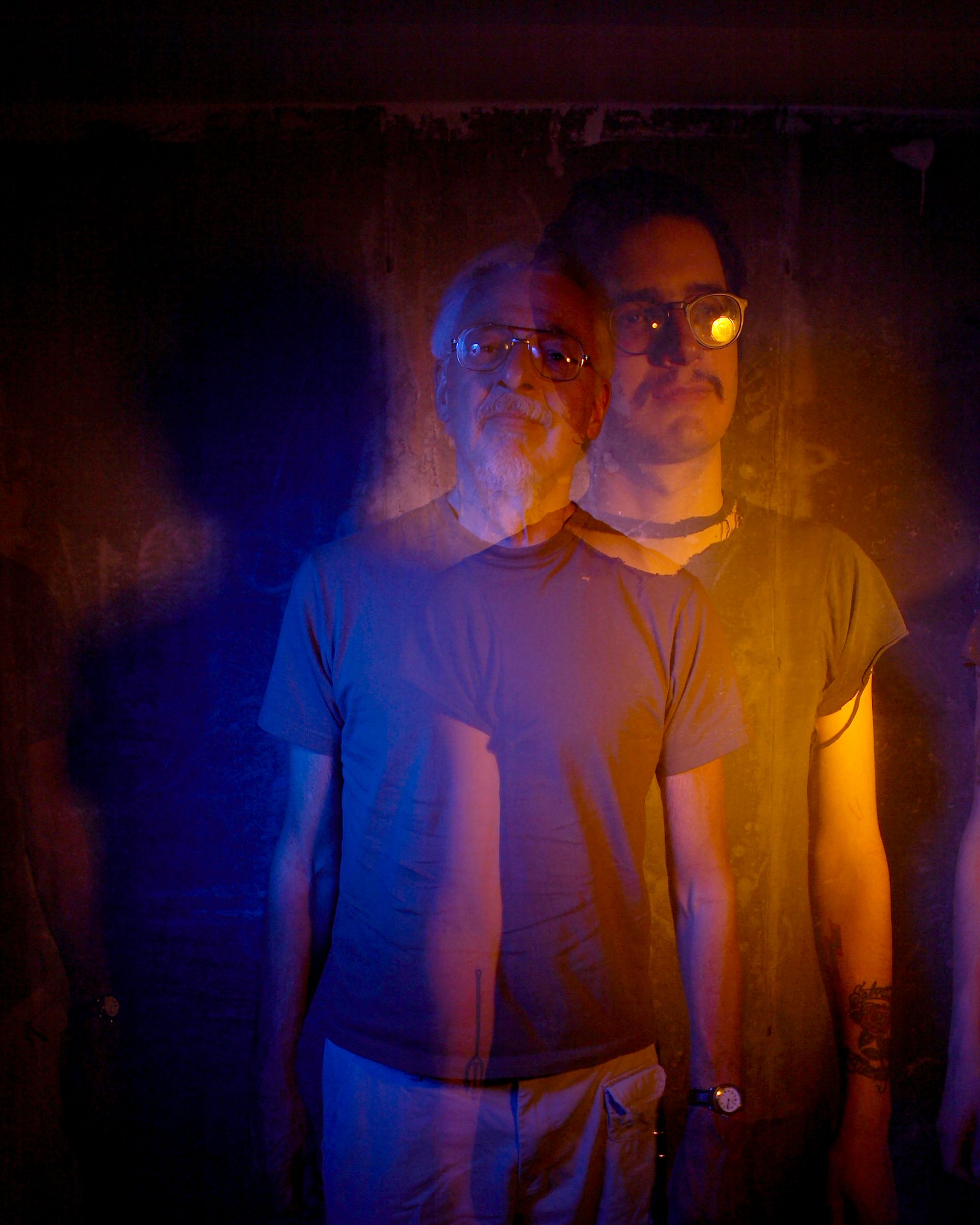Death Is Big And Stupid

The last thing I’ve ever wanted to be is the sort of writer who uses grief as a shortcut to beauty. You hopefully know what I mean. Grief is universal and even a rudimentary transcription of it can remind any given reader of a time when grief felt like a stone in their belly, that extended up into their throat, stopping just below their eyelids. And what isn’t powerful about relating to that feeling? It’s like being the center of the universe, in a universe empty of meaning (giving the self even more room to shake its sad booty). Grief is powerful stuff by default. With the added bonus of also being a singular sensation, that is so simultaneously universal that no online discussion of narcissism can touch it. Shit is critic-proof. I’d highly recommend it if, you know, it didn't come with people you love dying.
I don’t want to be a beautiful writer. Or even a true one, exactly. I don’t know what kind of writer I want to be. Something else, difficult to describe and perhaps outside the reach of my ability. In Richard Russo’s Straight Man, the protagonist’s mother bemoans the fact that her son has grown up to be “clever.” I don’t know how well a campus satire like Straight Man holds up now that poking fun at the sensitivities of academia is largely the purview of the kind of “heterodox thinkers” who are occasionally correct but more often are just run-of-the-mill assholes. But the idea of cleverness being a retreat from taking the world head-on has stayed with me. That said, my dad once wrote to Paul Newman and requested, as opposed to the MacArthur “Genius” grant, a small amount of money in the form of a “Pretty Good” grant. So cleverness, it appears, is in my blood.
I don’t want to write about grief at all. To do so feels, if not “cheap” exactly, then incommonsurrate at very least. But my mom, Hedy Lipez Burbank, died a year ago. And my dad, Richard Stevenson Lipez, died last Tuesday. Grief is all I can think about. I don’t even know that I’m sad. Not actively. Not more than I am enraged. But I am reeling.
My dad was a lucky guy. He lived a long life. He wrote wonderful books that more than a few people actually gave a shit about. He survived being a gay man in the ‘60s and ‘70s. While losing numerous friends, he survived AIDS. He was still with my mom in the ‘80s and, while they were both honest within reason, I had an outsized fear of flues in that time, what with so many of my dad’s charming and wry buddies dying from high fevers. My dad found true love (in Joe Wheaton) and, eventually, so did my mom (in Kim Burbank, the sweet and soft spoken lawyer who, I think, handled my parents’ divorce). So dad was lucky in that he got the man of his dreams while keeping both the friendship of his former wife and (with only a few speed bumps) the affections of both their children. My dad had the usual amount of cancer, but it rarely stuck. Until it did. As he put it; he was lucky until “the bottom fell out. And then the bottom fell out again.” He was grateful for the time he had but, never once being a sucker for the world and its pieties, he wasn’t so grateful that he didn’t know a raw deal when it finally came.
As a final gift to me, my dad’s tastes in music resist easy beauty. While he loved jazz (once driving from Lock Haven to NYC just to see Duke Ellington perform and, knowing no one in the city, attempted to drive back that night, eventually being forced to pull over and camp out with a caravan of Jehova’s Witnesses), he wouldn’t expect me to write about that love. The music he played for me was clever. He loved Cole Porter, Sondheim, and Tom Lehrer, composers whose wit needs no elaboration. He loved Chic, whose wit as the Black Roxy Music is undersung but also self-evident. And he loved “I Like ‘em Big and Stupid,” the 1983 single (with its b-side being “The Homecoming Queen’s Got a Gun”) by Julie Brown. My dad and I, when I was a child, probably listened to this record together the most.
Julie Brown (not to be confused with the “Downtown” Julie Brown of MTV, that Helmet song, and some very funny, if weirdly mean spirited, In Living Color skits) is an actress and pop parodist who, while still doing reasonably cool stuff, had a deserved heyday in the dayglo side of 1980s with a couple minor Dr. Demento-level hits and a co-starring role in Earth Girls Are Easy. Her persona was an exaggerated, Valley Girl femininity that was ostensibly a parody of Madonna, if such a thing was ever possible. Julie Brown was subversive in the way Max Headroom was. She saw the facade, but probably would have sold Pepsi if Pepsi had asked. She was “campy” but ahead of the cultural curve in that she celebrated her contemporary beach bingo targets as much as she mocked them. More wink than bite, Brown’s satire was never caustic. But it was charming and funny because she was. If you want a fuller idea of Brown’s oeuvre, imagine if Divine was born into a biologically female body, and had survived to star in John Waters’ later family-friendly fare.
I don’t know how Julie Brown appeared on my dad’s radar. I can only assume that the I Like ‘em Big and Stupid 12” was covertly mailed to every closeted gay male in America. Maybe as consolation for Bette Midler hanging up her mermaid fins to pursue broader, straight world, success. I didn’t ask. I was eight. I didn’t understand Susan Sontag much. And, when my dad watched Female Trouble with myself and my eleven year old sister, I took the John Waters film at face value as an oddly shot melodrama with swearing I found hilarious. I was still a few years away from asking my mom why her husband spent so much time in Albany (she told me to ask him and when I didn’t, my dad took it upon himself to sit me down and explain bisexuality). But, even with the tidal pull of pubescence (that, for me, would be ushered in with sweaty gawking at the exposed panties on the cover of my dad’s copy of Jethro Tull’s Thick As A Brick, followed with shameless shoplifting of Playboys from the local comic book shop) a couple years in my future, and therefore with me still being largely oblivious to Miss Julie Brown’s *cough* more pronounced attributes, I sure did think the real-life-cartoon singer (depicted on the 12” back cover as a tierra-ed prom queen, under the subheadline “Sugar and Spice and Everyone’s Dead!”) was exceedingly neat-o.
(I have no idea why my dad had a Jethro Tull album. Another wonderful thing about him was that he never cared much for the anti-rock bombast that that band–or for that matter The Who–were peddling. I’m listening to the album for the first time right now. It’s actually pretty cool, but I’m five minutes in and I think I’ll go back to Julie Brown.)
I don’t know what I’m doing here. I don’t want to write an essay about Julie Brown. It was fun listening to her record, over and over, with my dad. But it wasn’t and isn’t too important. My dad and my sister and I listened to the original cast recording of Sweeney Todd: The Demon Barber of Fleet Street (the 1979 album with Angela Lansbury–whose fanclub my sister was a member of–and Len Cariou) more than anything else. I’ve seen almost every version of it since. The last musical I watched with my dad was the Spielberg version of West Side Story. As my dad lay dying, he listened to Ellla Fitzgerald. Sitting by my dad’s bed, reminding myself to drink him in even if he wasn’t looking as spry as he had even two weeks before, I tried to attach meaning to listening to Ev'ry Time We Say Goodbye with him. But the delicately resolute romanticism of the singing made it impossible. I didn’t want to say goodbye. I didn’t want anyone to die, even a little. But that’s not what Ella was singing about. And I wouldn’t make one of my dad’s favorite love songs into a dirge just to satisfy my sense of drama or, to be kinder to my impulses, my flailing need for my dad to be alive for just a few more days. I was feeling greedy as all hell for my dad to live as long as my sister, Joe, or I (not necessarily in that order) needed him to, and I was ready to bargain by the hour. But the core of Ev'ry Time We Say Goodbye resisted interpretation. And I’ve never in my life been so opposed to the Death of The Author.
See. Clever. What can you do?
Anyway. This was supposed to be a short note explaining why the newsletter may be even more sporadic than usual. My dad was a writer. He felt lucky to be one. So I won’t be an ingrate. I’ll do what he taught me. But I don't feel like it. I don’t feel like doing anything, really, besides ignoring texts from people I care about, petting the cats, and letting Zohra bring me cup after cup of coffee while she, crying herself, kisses my face. It’s not a bad life and I fucking love being alive. In fact, purely to spite cancer (and partially to avoid being clever, or even smart), I think I’ll keep smoking.
And I’ll continue avoiding taking or giving advice. I didn’t gain any wisdom when my mom died and I don’t expect to gain any now. My mother only offered advice when it was asked for, and it usually consisted of something along the lines of “you can’t change what people do, only how you respond to it” and “don’t be a jerk.” The only advice my dad favored was the Elmore Leonard quote, “when you write, leave out the parts that readers skip.” As those tend to be my favorite parts, I can’t do much with that. Except maybe apply it to everything other than my writing. Neither of my parents were selfish (any more than the usual amount) and, outside of travel, neither of them were thrill seekers (unless one counts gardening and voracious consumption of mystery novels to be a thrill) but neither did they let exposition get in the way of the good parts. I’m not exactly filled with joie de vivre at the moment, or for the foreseeable future, but I guess I can endeavor to be a more dutiful son in my parents’ absence than I was in their lives. (For the record: I was pretty dutiful.)
Or not. My dad, complicated son of a bitch that he was, deserves better than a neat bow tied neatly. Instead, I look to Julie Brown, prophetically singing, “When I need something to help me unwind/ I find a six-foot baby with a one track mind/ Smart guys are nowhere, they make demands/Give me a moron with talented hands.”
I’ve never felt more like a six-foot baby, a smart guy who is nowhere. And my demands? My demands are impossible.

Thanks for reading. See you soon.
